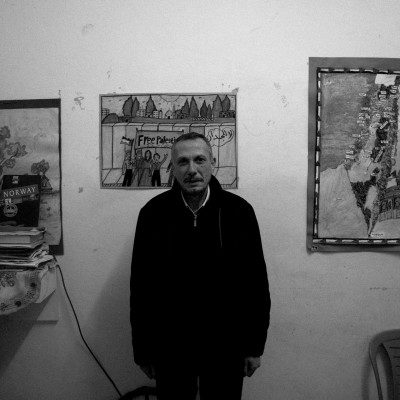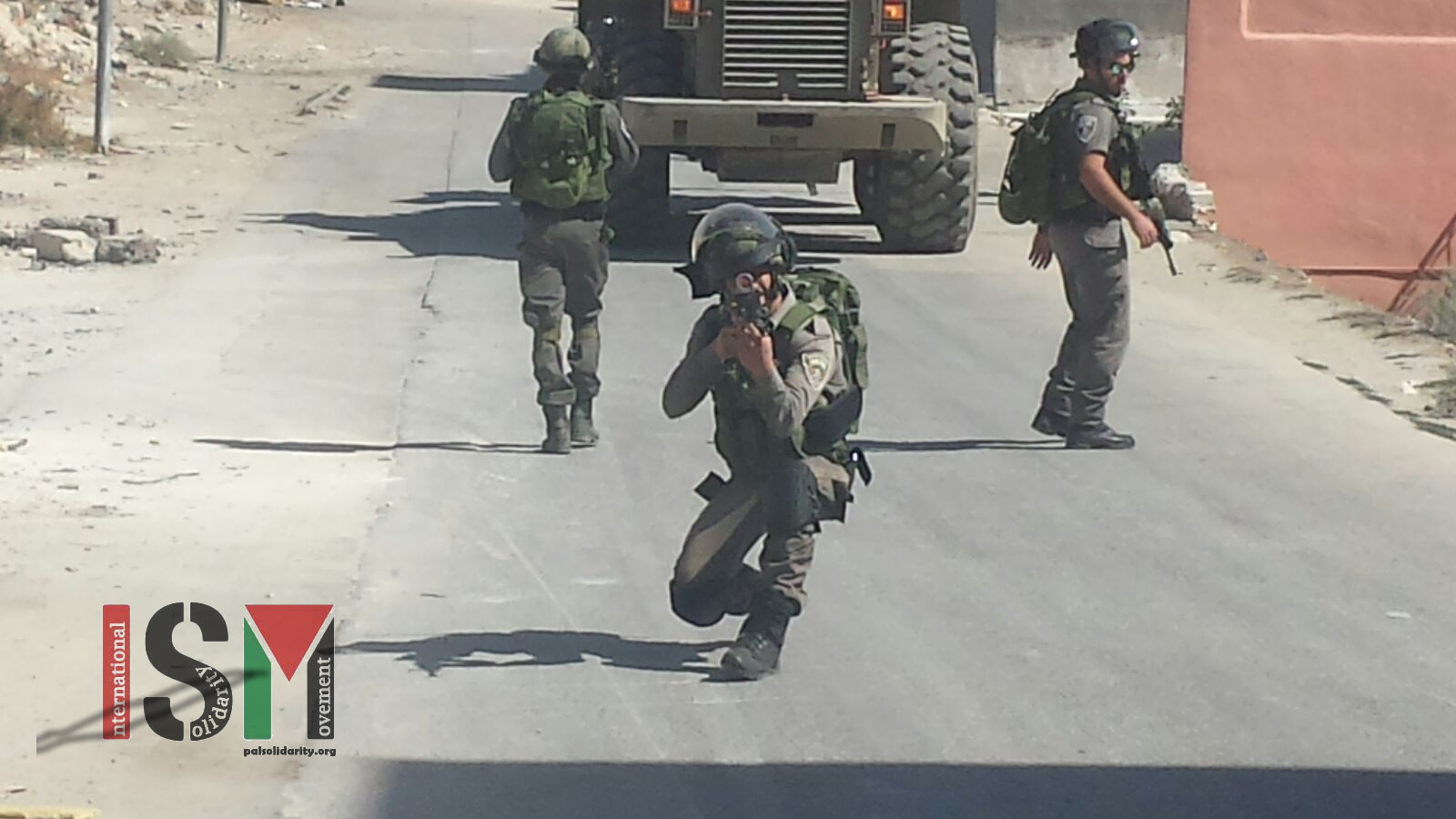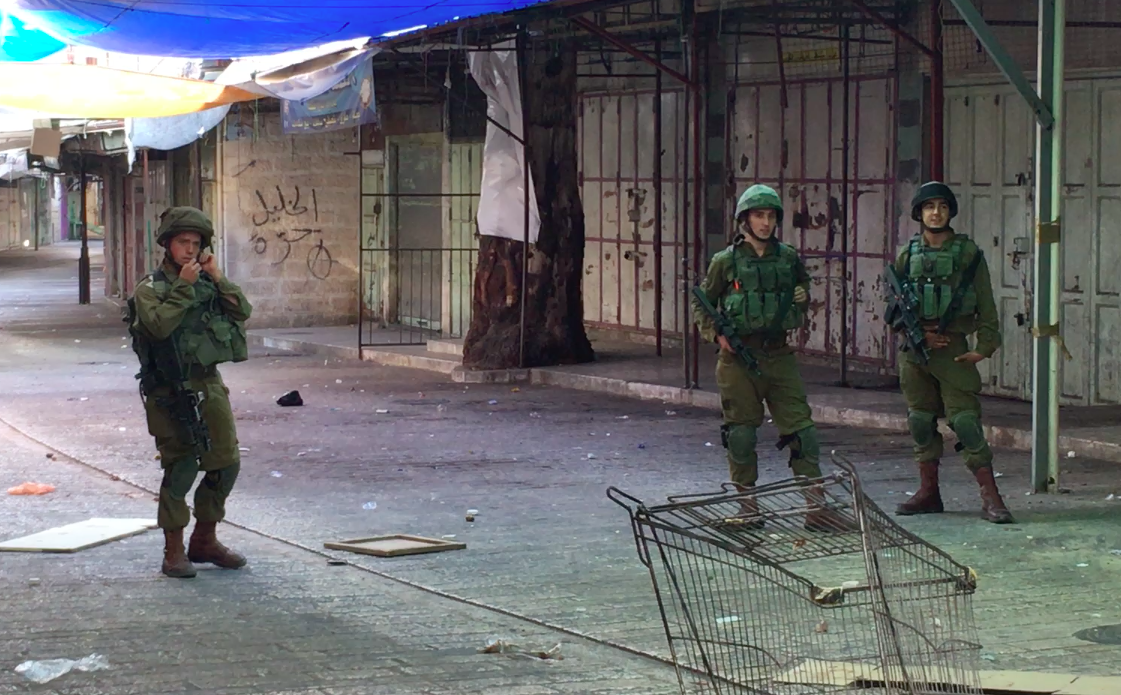Category: Hebron
-
The Weight of Each Stone
For generations, stones have played a significant role in both Palestinian society and within resistance movements. For this reason, it should be no surprise that the Israeli state has historically targeted the use of stones in a variety of ways, and continues to today. The significance of stones within the Palestinian context is deeply-rooted. For…
-

‘We are strong and we will be free’ – Hashem Azzeh memorial
24th October 2016 | International Solidarity Movement, al-Khalil team | Hebron, occupied Palestine One year has lapsed since the passing of Hashem Azzeh, a devoted husband and loving father of three, and close friend of ISM. Hashem died following an exacerbation of a latent heart condition that was triggered by tear gas inhalation suffered in…
-

Roadblocks, stun grenades and settler aggression: another Jewish holiday in occupied al-Khalil
23rd October 2016 | International Solidarity Movement, al-Khalil team | Hebron, occupied Palestine The events of Tuesday the 18th of October began to unravel as my friend and I accompanied school children through an Israeli checkpoint (Salaymeh) as they made their way home that afternoon. On our return journey from the school we noticed a…

